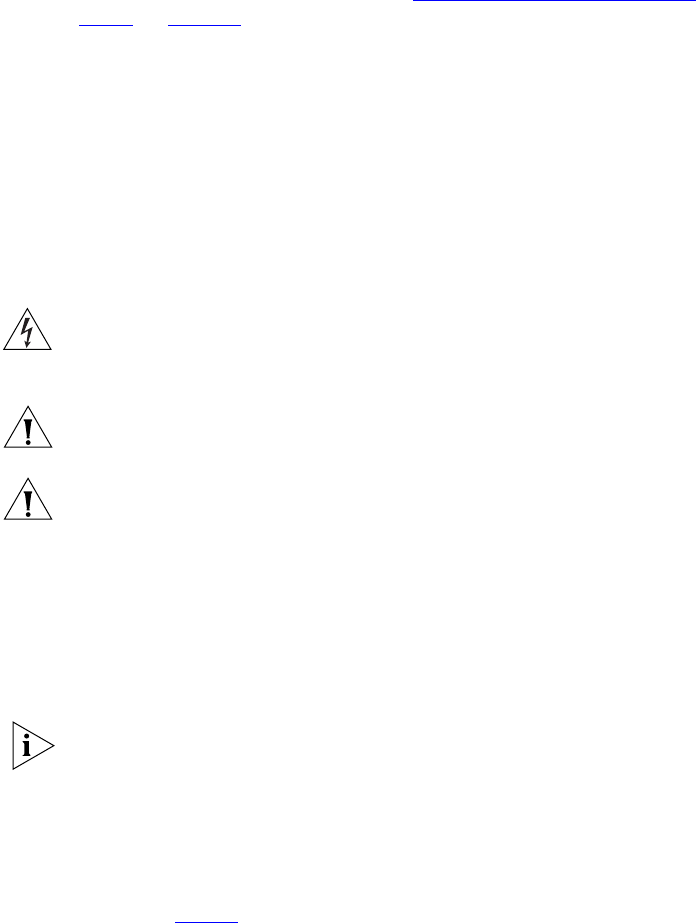
The Power-up Sequence 27
If there is evidence of a problem, see “Solving Problems Indicated by
LEDs” on page 54 for a list of suggested solutions.
Connecting a
Redundant Power
System
You can connect a SuperStack 3 Advanced Redundant Power System to
the Switch. This unit, which is also known as an RPS, is designed to
maintain the power to your Switch if a power supply failure occurs.
For normal redundancy, the unit requires one Type 3 Power Module (part
number 3C16075).
For full redundancy, the unit requires two Type 3 Power Modules
combined using a Type 3 Y-Cable (part number 3C16077).
WARNING: If you are connecting the Switch to a Type 3 Power Module,
read the Safety Information section in the Type 3 Power Module User
Guide.
CAUTION: The Switch can only use a SuperStack Advanced Redundant
Power System output.
CAUTION: The Switch has no ON/OFF switch; the only method of
connecting or disconnecting mains power is by connecting or
disconnecting the power cord.
Choosing the Correct
10/100/1000BASE-T
Cables
If your Switch has 10/100/1000BASE-T ports, these ports are Auto-MDIX,
that is they have a cross-over capability. These ports can automatically
detect whether to operate in MDI or MDIX mode. Therefore you can
make a connection to one of the ports with a straight-through (MDI) or a
cross-over cable (MDIX).
The Auto-MDIX feature only operates when auto-negotiation is enabled.
If auto-negotiation is disabled, all the Switch ports are configured as
MDIX (cross-over). If you want to make a connection to another MDIX
port, you need a cross-over cable. Many ports on workstations and
servers are configured as MDI (straight-through). If you want to make a
connection to an MDI port, you need to use a standard straight-through
cable. See Table 7
.
3Com recommends that you use at least Category 5 twisted pair cable —
the maximum segment length for this type of cable is 100 m (328 ft).


















